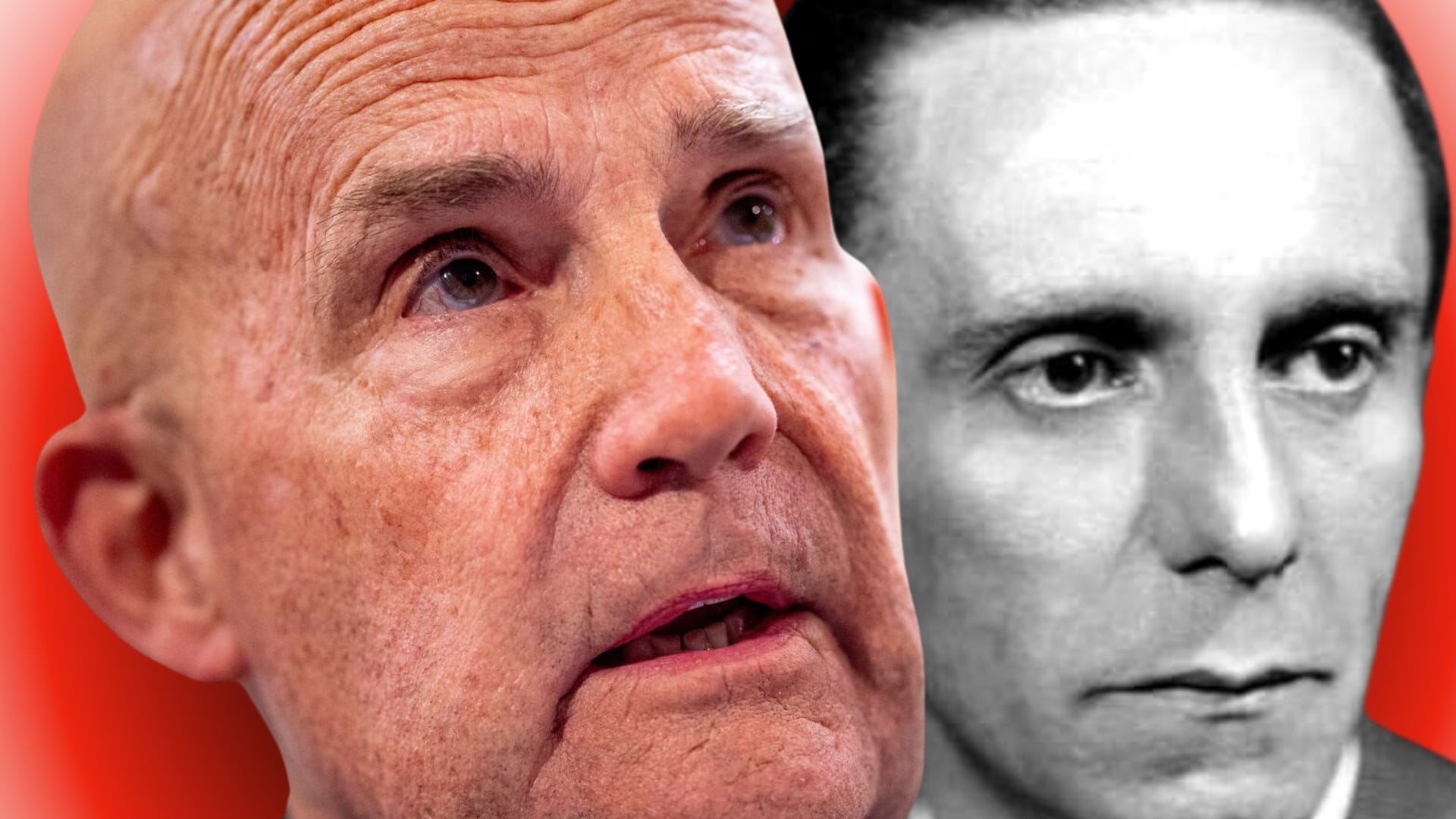It was a routine congressional hearing on censorship—or it would have been, had Rep. Keith Self not cracked open a dusty copy of Authoritarianism for Dummies and decided to quote, of all people, Joseph Goebbels.
Let that sink in. A sitting member of Congress, during a discussion about censorship and freedom, summoned the words of the Third Reich's chief propagandist. He insisted it was just to make a point—like bringing a flamethrower to a birthday party and claiming you're only there to light the candles.
To be fair, Rep. Self claimed he wasn’t endorsing Goebbels, merely quoting his "philosophy" for illustrative purposes. But in today’s climate—where antisemitism is on the rise and authoritarian rhetoric is no longer fringe—quoting a Nazi at a censorship hearing does more than raise eyebrows. It signals a casual erosion of moral boundaries. And if there’s one thing we've learned from history, it’s that quoting Nazis always leads to clarity and unity—just not the kind anyone should aspire to.
It’s unclear whether this was a deliberate provocation, an earnest confusion, or an elaborate audition for a History Channel reboot titled Despots We Shouldn't Reference at Brunch.
A Teaching Moment, Brought to You by Tyrants
Imagine, if you will, a Civics 101 class led by Rep. Self:
"Today, class, we’ll be learning about the First Amendment! Let’s begin with an inspiring quote from... Goebbels."
Cue the record scratch, the silence, and the collective Googling.
Of course, the quote itself was about silencing dissent—a chilling echo when heard in a chamber supposedly devoted to democratic discourse. Which, coming from a man whose job involves talking for a living, is a bit like a chef advocating for the outlawing of knives.
The Goebbels Jar
Perhaps it’s time Congress installed a Goebbels Jar. Each time a lawmaker name-drops a Nazi for rhetorical flourish, they owe a donation to a Holocaust education fund and must spend an hour reading Night by Elie Wiesel.
Optional extra credit: explain to a group of eighth graders why this was a bad idea—without leaning on the old crutch of "context."
A Philosophy of Unforced Errors
There are many political philosophies. Some favor freedom. Some favor justice. Some—apparently—favor "accidentally quoting Nazis at hearings about censorship."
One hopes this isn’t a trend. That we don’t find future hearings punctuated by literary insights from Pol Pot or leadership tips from Mussolini. Though, in this timeline, anything feels possible.
We Cannot Let This Be Normal
I remember visiting a Holocaust museum and seeing a display on Goebbels’ propaganda machine. It wasn’t just the posters or speeches—it was the quiet manipulation. What haunted me most was a quote etched on the wall: “It started with words.” At the time, I didn’t fully grasp the warning. Now I can’t stop hearing it. That memory resurfaced as I listened to Rep. Self speak. It always starts with words. What we normalize, we inherit.
Final Note: A Modest Proposal
If we must quote someone at censorship hearings, let it be Orwell. Or Baldwin. Or literally any human not responsible for the Holocaust.
Or better yet, maybe we stop treating congressional hearings like open mic night at the Alt-History Comedy Club.
Because next time, someone might quote Voldemort. And frankly, in this era of recycled outrage and rhetorical one-upmanship, he might actually seem refreshing. And if we’re still laughing, we might be part of the problem. It started with words. And it’s still words we need to watch.



Actually, I’d say that they are both Nazis. Only one of them had a clue about his intentions and it’s not Self.